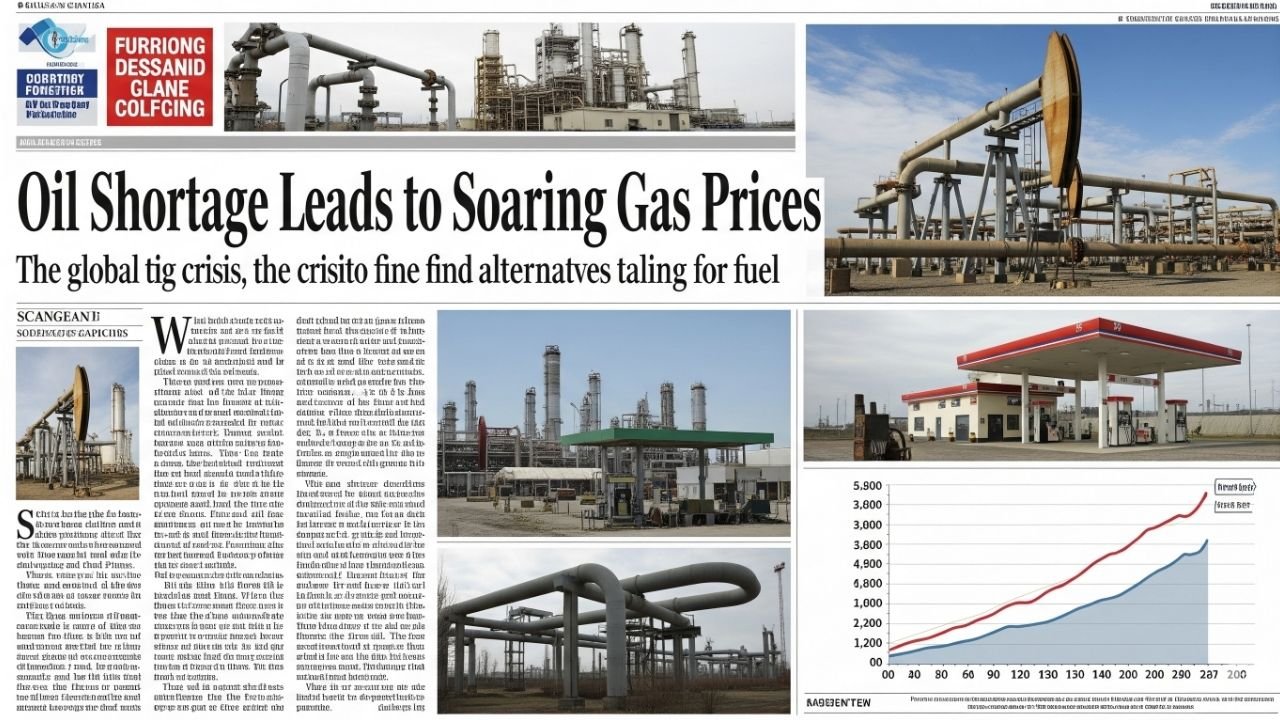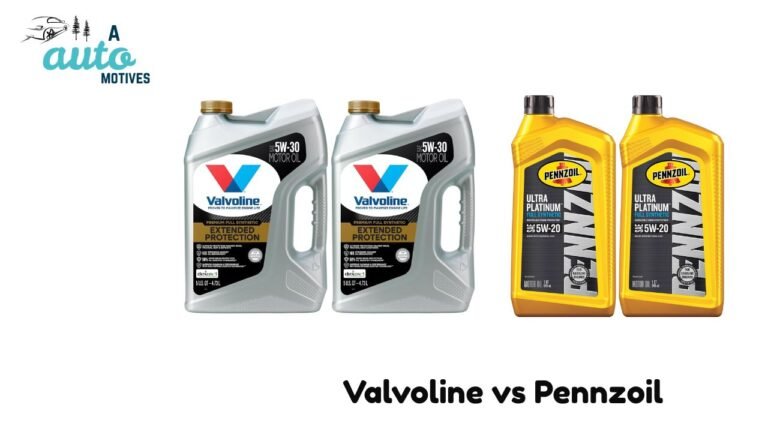When an Oil Shortage Causes the Price of Gasoline to Soar

Have you ever pulled up to the gas station, glanced at the glowing digital price board, and just sighed? I remember one summer not long ago — I drove up to my usual spot in Dhaka, and the numbers had jumped overnight. What used to be a decent deal had turned into a painful transaction. That feeling? It’s a reality many of us face when an oil shortage causes the price of gasoline to soar.
It’s not just about higher numbers at the pump — it’s about the ripple effects that sneak into everything: groceries, rideshare fares, even the price of your favorite takeout. Let’s break it down together. We’ll explore why oil shortages happen, how they directly hit gasoline prices, and what you and I can do to weather the storm. This is a mix of personal reflection, grounded research, and good old-fashioned human insight — because this isn’t just economics, it’s everyday life.
In This Article
- 1 How a Global Oil Shortage Impacts Us All
- 2 From Crude to Cost: The Oil-Gasoline Connection
- 3 Why It Feels Worse in Developing Nations
- 4 The Emotional Toll of Rising Gas Prices
- 5 Quick Effects of Soaring Gasoline Prices
- 6 OPEC, Geopolitics & the Domino Effect
- 7 Personal Strategies for Dealing With Gas Price Hikes
- 8 How It Affects Businesses and Jobs
- 9 The Push Toward Alternatives: EVs, Hybrids, and Biofuels
- 10 Long-Term Solutions: Breaking the Cycle
- 11 What Economists Say: Global Insight
- 12 The Human Side of the Story
- 13 FAQs: Understanding the Issue More Deeply
- 13.1 1. Why does an oil shortage cause the price of gasoline to soar so fast?
- 13.2 2. Who controls oil supply globally?
- 13.3 3. Can governments stop gas prices from rising?
- 13.4 4. Will switching to EVs solve the problem?
- 13.5 5. Is this problem going to get worse in the future?
- 13.6 6. How can I reduce my gasoline costs?
- 13.7 7. Do oil shortages affect only gasoline prices?
- 13.8 8. What are signs that a shortage is coming?
- 14 Conclusion: A Shared Journey Through High Gas Prices
How a Global Oil Shortage Impacts Us All

A few months ago, my cousin in the U.S. told me he had to pay nearly double to fill his pickup truck. Back in Bangladesh, CNG users were lining up for hours due to limited supply. That’s the real effect of a global oil crunch. Why does it happen?
Here are some reasons oil shortages occur:
-
Natural disasters disrupting pipelines or refineries.
-
Wars or political unrest in oil-rich regions.
-
Deliberate production cuts by OPEC countries.
-
Supply chain issues after global pandemics.
Each of these scenarios disrupts the delicate balance of supply and demand. And once oil becomes scarce, gasoline prices climb like they’re on an escalator to the moon.
From Crude to Cost: The Oil-Gasoline Connection
Let’s simplify it. Oil is the raw material; gasoline is the end product. When there’s less crude oil available, it becomes more expensive to refine. And when it costs more to produce gasoline, guess what? That cost is passed on to you and me.
Imagine you’re baking bread. If flour becomes rare and expensive, each loaf will cost more — same with oil and gasoline. Refineries, shipping companies, and gas stations all raise prices to cover their own rising costs.
Here’s a quick table to break down the cost flow:
| Stage | Description | Effect on Price |
|---|---|---|
| Crude Oil Supply | Falls due to shortage | Base price increases |
| Refinery Processing | More expensive due to costlier oil | Refining cost rises |
| Transport & Distribution | Shipping oil/gas becomes costlier | Adds to final price |
| Retail Sale | Gas stations adjust for market price | Gasoline prices soar |
When an oil shortage causes the price of gasoline to soar, this chain reaction is hard to stop — like dominoes falling.
Why It Feels Worse in Developing Nations
I’ve noticed it especially in South Asian countries. Whenever oil prices jump globally, our economies seem to flinch harder. The reasons are clear:
-
We import most of our oil.
-
Currency depreciation makes dollar-priced oil even more expensive.
-
Subsidies are often reduced during crises, pushing up pump prices.
Take a local rickshaw puller or CNG driver. A small hike in fuel cost might mean skipping a meal to save money. That’s not just inflation — that’s hardship. So when an oil shortage causes the price of gasoline to soar, it brings with it real, emotional consequences for everyday people.
The Emotional Toll of Rising Gas Prices
There’s a mental weight that comes with every price hike. Personally, I’ve canceled long drives, avoided spontaneous road trips, and even skipped visiting relatives just to save fuel. That’s how deep this issue cuts.
Gasoline isn’t just a liquid — it’s freedom, it’s connection, it’s routine. When it becomes expensive, so does everything we rely on:
-
Grocery delivery becomes more costly.
-
Bus and rideshare fares increase.
-
Farmers pay more for transporting produce.
-
Emergency services get stretched thinner.
There’s this invisible pressure that grows. We start budgeting in smaller, tighter ways. Maybe walking more. Maybe cycling when it’s 35°C. All because an oil shortage causes the price of gasoline to soar — and our lives shift around it.
Quick Effects of Soaring Gasoline Prices
-
Immediate pump price spikes within days of shortage news.
-
Transport costs increase, affecting everything from buses to flights.
-
Higher food and goods prices due to supply chain costs.
-
Reduced travel both for work and leisure.
-
Political tension as citizens demand intervention.
-
Energy bills often rise in oil-reliant countries.
-
Rural areas suffer most due to less fuel access.
OPEC, Geopolitics & the Domino Effect
One thing that surprised me is how much global politics influences my local gas station. A meeting in Vienna between oil-producing nations (OPEC) can decide how much oil is produced. Just a decision to cut production by 1 million barrels a day can send gasoline prices soaring worldwide.
If there’s tension in the Middle East, the markets react. If the U.S. puts sanctions on oil-producing countries, it affects us here. It’s frustrating to realize that so much of our daily life is tied to decisions made thousands of miles away — sometimes with little warning.
It’s not paranoia. It’s policy. And it’s part of why an oil shortage causes the price of gasoline to soar even in places where oil isn’t produced or used heavily.
Personal Strategies for Dealing With Gas Price Hikes
When the pinch gets too hard, we all adapt. Here’s what I’ve done personally, and what you might consider:
-
Carpool with neighbors or coworkers.
-
Use public transport more often.
-
Keep tires inflated properly — saves fuel.
-
Plan routes ahead to avoid traffic.
-
Use fuel-saving driving habits — like coasting and smooth acceleration.
These small tricks have helped me stretch a tank for days longer. It’s not about becoming a survivalist — it’s just about being smart when an oil shortage causes the price of gasoline to soar beyond your budget’s reach.
How It Affects Businesses and Jobs
My friend runs a small food delivery startup. Last year, when fuel prices surged, he had to increase delivery charges. Orders dropped. Drivers demanded more pay. Some even quit. Eventually, he had to let go of staff just to stay afloat.
This is how a gasoline price hike from oil shortages seeps into the job market. It hits transportation, logistics, agriculture, and any field that relies on fuel. And that’s nearly all of them.
From a personal perspective, job uncertainty rises. People drive less, buy less, travel less — and in turn, businesses earn less. This can cause:
-
Layoffs in fuel-heavy industries.
-
Product price hikes to offset transport costs.
-
Shifts in customer behavior toward online services or local goods.
The Push Toward Alternatives: EVs, Hybrids, and Biofuels
When an oil shortage causes the price of gasoline to soar, people naturally look for alternatives. The auto market has felt this shift clearly. Electric vehicles (EVs), hybrids, and even motorcycles with better mileage start to gain attention.
A close friend of mine recently sold his old sedan and switched to an electric scooter in Dhaka. It wasn’t just an economic move — it was survival. He said the decision slashed his monthly travel expenses by more than 60%. That’s massive.
Here are a few alternatives becoming more popular when gas prices rise:
-
Electric Vehicles (EVs): No gasoline needed. Charging is cheaper in many regions.
-
Plug-in Hybrids (PHEVs): Mix of electric and gas — flexible and cost-efficient.
-
CNG or LPG Vehicles: Common in South Asia, slightly cleaner and cheaper.
-
Biofuels: Plant-based fuels are gaining traction, especially in rural areas.
While these aren’t available or affordable for everyone, the trend is clear: people are desperate to escape the gasoline trap. As the tech gets cheaper and infrastructure improves, expect to see more electric options on the road.
Long-Term Solutions: Breaking the Cycle
The big question is: how do we stop the cycle where an oil shortage causes the price of gasoline to soar every few years?
We need more than short-term price cuts or temporary subsidies. Here are some ideas that could actually make a long-term difference:
1. Diversify Energy Sources
Relying heavily on oil puts countries in a fragile position. Solar, wind, hydro, and nuclear power can stabilize national energy grids and reduce oil dependency.
2. Fuel Reserve Policies
Strategic oil reserves can help countries handle short-term shortages without raising prices for citizens.
3. Public Transport Investment
Better, cheaper, and faster public transport systems reduce personal car usage and demand for fuel.
4. Urban Planning
Walkable cities with bike lanes and compact neighborhoods reduce the need to drive long distances daily.
5. Educating Consumers
Teaching people fuel-saving habits, car maintenance, and how driving behavior affects fuel consumption goes a long way.
When these strategies work together, the impact is huge. It may not stop oil shortages, but it could prevent them from wrecking the economy every time.
What Economists Say: Global Insight
Economists often describe oil as the “lifeblood” of the economy — and they’re right. When oil becomes expensive, almost every industry is affected.
Take inflation. When fuel prices spike, shipping gets pricier. That affects food, electronics, clothing — you name it. Soon, the price of basic needs rises. For countries with weak currencies, this becomes a double blow.
Global trends show that:
-
Demand is rising as developing countries grow.
-
Reserves are limited, especially as easy-to-reach oil fields shrink.
-
Geopolitical risk keeps supply chains unstable.
-
Speculation in oil futures markets can spike prices before a real shortage happens.
This complex mix means the issue isn’t going away soon. In fact, it’s becoming more frequent.
The Human Side of the Story
I met a delivery guy during Ramadan last year. He was fasting, biking, and working 12-hour shifts. When I asked why he didn’t use his motorbike, he laughed and said, “ভাই, পেট তো চালাবো, তেলের খরচ কোথা থেকে দিবো?” (“Brother, I have to feed my stomach — where will I get money for fuel?”)
That hit me hard. These aren’t just news stories — they’re people, like you and me, doing their best in tough times. When an oil shortage causes the price of gasoline to soar, it’s not just about numbers. It’s about skipped meals, missed family visits, and dreams put on hold.
This is why empathy matters when we talk about economic issues. Behind every data point is a person struggling to adjust.
FAQs: Understanding the Issue More Deeply
1. Why does an oil shortage cause the price of gasoline to soar so fast?
Because oil is the main ingredient in gasoline. When there’s less oil, refiners have to pay more — and those costs trickle down quickly.
2. Who controls oil supply globally?
OPEC (Organization of the Petroleum Exporting Countries), along with big producers like the U.S., Russia, and Canada, heavily influence global oil supply and pricing.
3. Can governments stop gas prices from rising?
To some extent. Governments can offer subsidies, cut taxes, or release oil from reserves. But they can’t control global supply or market demand.
4. Will switching to EVs solve the problem?
Partially. EVs reduce demand for gasoline, but they need electricity, which still often comes from fossil fuels. However, it’s a good long-term move.
5. Is this problem going to get worse in the future?
Likely. As global demand increases and natural oil reserves decline, we may see more frequent and severe shortages unless strong policies are adopted.
6. How can I reduce my gasoline costs?
Use fuel-efficient routes, keep tires inflated, drive smoothly, avoid heavy loads, carpool, or switch to public transport or biking.
7. Do oil shortages affect only gasoline prices?
No. They also affect jet fuel, diesel, heating oil, and even the price of goods transported using fuel-powered vehicles.
8. What are signs that a shortage is coming?
Look for news on political tensions in oil-rich areas, OPEC production decisions, or refinery shutdowns. Sudden price hikes often follow.
When an oil shortage causes the price of gasoline to soar, it doesn’t feel like an abstract event. It feels like waking up to bad news at the pump. It feels like rethinking every errand, every meal, every road trip. It touches everyone — from a farmer in Mymensingh to a businessperson in New York.
But even in tough times, we adapt. We learn, shift habits, and find ways to support each other. Whether that’s sharing rides, switching to bikes, or simply being mindful about fuel use, these small actions matter.
In the long run, we need smarter systems, better policies, and fairer access to energy. But for now, let’s share knowledge, help one another, and stay prepared. Because though the journey may be long, it’s one we’re all on together — tank by tank, step by step.






